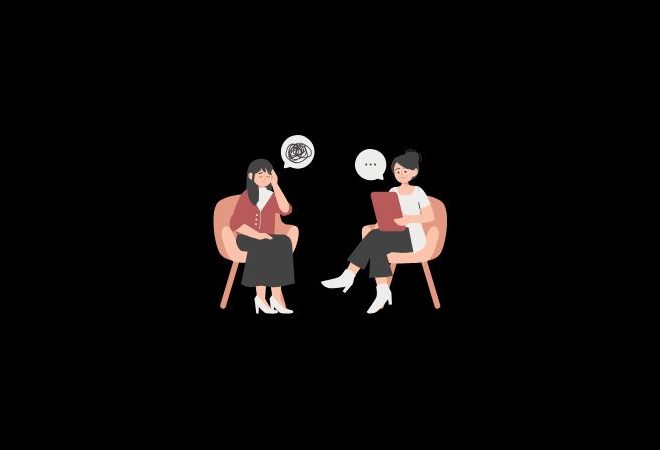
5 Methods Remedy Helps Break Binge Consuming And Self Loathing
Affiliate hyperlink discover: As an affiliate of BetterHelp and different third-party distributors, We’ll obtain compensation if you happen to make a purchase order utilizing the hyperlinks supplied on this web page. For extra data, go to our disclosure web page.
Binge consuming and self loathing usually feed one another in a vicious cycle. An evening of heavy consuming results in remorse, disgrace, and isolation—which solely will increase the probability of consuming once more. Over time, this sample can take a critical toll in your bodily well being, emotional stability, and sense of self-worth.
If this sounds acquainted, step one ahead isn’t remedy—it’s sobriety. Remedy will be transformative, however provided that you’re in a spot the place you’re not consuming and might have interaction with the emotional work it requires. Sobriety supplies the steadiness wanted to face the deeper points that gasoline the cycle: unresolved disgrace, trauma, and a harsh interior voice.
When you’ve stopped consuming—usually by detox, rehab, or a structured restoration plan—a therapist may help you perceive what’s driving the conduct and change it with compassion, coping abilities, and long-term resilience. Right here’s how remedy can help your restoration from binge consuming and self loathing.

What Is Binge Consuming?
Binge consuming is outlined as consuming a considerable amount of alcohol in a brief time period—usually 5 or extra drinks for males, or 4 or extra drinks for ladies, in about two hours.
Many individuals who binge drink don’t take into account themselves “alcoholics” as a result of they don’t drink on daily basis. However even occasional episodes of heavy consuming can result in actual hurt—bodily, emotionally, and relationally. Binge consuming usually flies underneath the radar as a result of it’s socially normalized, particularly in high-stress or social environments.
What makes binge consuming particularly harmful is that it could possibly really feel managed—till it isn’t. And when it’s adopted by disgrace, blackouts, arguments, or impulsive conduct, the emotional toll deepens.
Understanding Self-Loathing
Self-loathing is extra than simply low shallowness. It’s a power sense of worthlessness, interior contempt, and self-rejection. Ideas like “I damage every little thing,” “I’m damaged,” or “Nobody might actually care about me” are widespread. For individuals who binge drink, alcohol usually turns into a strategy to quickly silence that interior critic.
However the aftermath—remorse, reminiscence loss, emotional volatility—solely strengthens these beliefs, fueling a painful suggestions loop:
Binge consuming → Self-loathing → Disgrace → Extra consuming
Over time, this cycle can really feel almost unattainable to flee. That’s the place remedy is available in.
How Remedy Helps Break the Cycle
When you’ve stopped consuming and reached some extent of emotional and bodily stability, remedy may help you unpack what’s beneath the sample. A talented therapist can help you in difficult the beliefs and behaviors that gasoline binge consuming and self loathing—and aid you change them with one thing more healthy.
Listed here are 5 key methods remedy helps long-term restoration.
1. Unmasking the Disgrace Cycle
In remedy, you’ll map your private cycle to grasp your patterns. Maybe you drink to flee stress, then criticize your self harshly afterward, adopted by durations of isolation and loneliness, which triggers one other consuming episode. By figuring out every hyperlink on this chain, you acquire the facility to intervene at a number of factors. It might appear to be:
Binge Consuming → Self-Criticism → Isolation → Elevated Disgrace → Extra Binge Consuming
Binging goes past the bodily act of consuming. For most individuals, it’s a method to deal with overwhelming emotions of disgrace — that sinking feeling of embarrassment and self-criticism that fuels self-destructive conduct. In contrast to guilt, which acknowledges wrongdoing as a conduct, disgrace is the painful perception that there’s one thing inherently improper with you.
Guilt might encourage change. Disgrace convinces you you’re undeserving of it.
Therapists are skilled to assist distinguish between the 2. They use cognitive restructuring methods to problem shame-driven beliefs and change them with a more healthy self-view.
What units this other than easy “optimistic considering” is that remedy works beneath the conduct—focusing on the painful feelings that drive binge consuming and self loathing within the first place.
2. Constructing Self-Compassion as a Relapse Prevention Device
The idea that harsh self-criticism motivates change is misplaced. Analysis exhibits self-compassion is likely one of the only approaches to scale back problematic consuming.
Throughout remedy, you’ll be taught mindfulness workouts that interrupt the cycle of unfavorable self-talk. Strategies similar to aware respiration or physique scans assist enhance consciousness of your emotional state, permitting you to reply thoughtfully as an alternative of reacting impulsively.
You’ll additionally encounter what Dr. Kristin Neff calls “self-compassion breaks.” This entails pausing throughout moments of harsh self-talk to acknowledge your struggling, acknowledge that imperfection is a part of being human, and lengthen your self kindness.
Journaling can reinforce this apply. A therapist might introduce prompts that can assist you reframe setbacks as alternatives for progress moderately than proof of failure. This shift in mindset weakens the grip of binge consuming and self loathing by changing disgrace with accountability and hope.
While you start to deal with your self with compassion, the tough inner narrative that fuels your consuming habits begins to lose its grip. Self-compassion shifts your focus from punishment to progress. As you be taught to be kinder to your self, the urge to numb your ache with alcohol diminishes.
This compassionate method breaks the established order of conventional “inflexible” alcohol dependancy therapies. It reinforces that you just deserve therapeutic and that progress, not perfection, is the final word aim. Simply ask Annie Grace — bestselling creator of This Bare Thoughts.
3. Addressing Trauma or Co-Occurring Problems
The 24% of People who binge drink may have extra customized and highly effective coping methods to curb relapse. Generally, bingeing is an adaptive conduct for deep-rooted emotional points. Many people flip to alcohol to numb the results of unresolved trauma, anxiousness or melancholy.
Remedy consists of screening for these co-occurring problems. A therapist skilled in trauma-informed care may help you safely course of unresolved ache that could be fueling your consuming. Strategies like EMDR or somatic remedy will let you work with trauma in methods the aware thoughts alone might wrestle to handle.
Therapists who concentrate on dependancy usually collaborate with psychiatrists or medical suppliers to create an built-in therapy plan. This dual-focus method ensures each the emotional roots of binge consuming and the sensible wants of restoration are addressed collectively.
4. Creating Wholesome Coping “Options” to Consuming
For those who’ve used alcohol to deal with stress, anxiousness, or loneliness, remedy may help you develop a customized “coping menu”—a sensible listing of more healthy options to consuming, based mostly in your emotional wants. Some widespread choices embody:
Remedy can also embody role-playing high-risk conditions, similar to turning down a drink at a celebration or navigating uncomfortable feelings. Working towards these abilities in-session builds confidence—and provides you real-world instruments to forestall the return of binge consuming and self loathing.
5. Relapse as Knowledge, Not Catastrophe
Conventional fashions usually view relapse as failure, reinforcing the disgrace and hopelessness that result in additional consuming. Remedy flips that narrative.
A therapist may help you conduct a “relapse post-mortem”—a non-judgmental assessment of what led as much as the setback, what triggered it, and what might be finished in a different way subsequent time. This method transforms relapse from a private flaw into useful suggestions.
By normalizing setbacks as a part of the restoration course of, remedy helps break the disgrace spiral that sustains binge consuming and self loathing. Restoration isn’t linear. Every try builds new insights and resilience for the following.
Remaining Ideas
Now that remedy may help with binge consuming and self loathing, take into account connecting with a professional skilled that can assist you interrupt the cycle. Keep in mind: earlier than remedy can work, you’ll doubtless want to manage alcohol use by medical detox or rehab.
As soon as secure, a trauma-informed therapist may help you change disgrace and avoidance with compassion and braveness.
Every of those methods works collectively to help therapeutic from binge consuming and self loathing—not by demanding perfection, however by fostering progress, self-awareness, and resilience.
Take step one. You aren’t outlined by your worst moments, however by your willingness to heal from them.
Sources
1. American Psychological Affiliation. APA Dictionary of Psychology. Dictionary.apa.org. Accessed on 21 March 2025 from https://dictionary.apa.org/disgrace
2. Berg, S., Zaso, M., Biehler, Okay., & Learn, J. (2024). Self‐Compassion and Self‐Forgiveness in Alcohol Danger, Therapy and Restoration: A Systematic Evaluation. Scientific Psychology & Psychotherapy. Accessed on 21 March 2025 from https://doi.org/10.1002/cpp.2987
3. Neff, Okay. (2024). Train 2: Self-Compassion Break. Self-Compassion. https://self-compassion.org/workouts/exercise-2-self-compassion-break/
4. Literature & Leisure. (2025). Literatureandleisure.com. Accessed on 24 March 2025 from https://www.literatureandleisure.com/2023/08/book-review-this-naked-mind/
5. Magobet, V. (2022, March 14). The Impression of Binge Consuming. DiamondHouseDetox. Accessed on 24 March 2025 from https://diamondhousedetox.com/impact-binge-drinking/
6. Wiginton, Okay. (2021, Might 11). Train: How It Can Assist With Habit Restoration. WebMD. Accessed on 24 March 2025 from https://www.webmd.com/mental-health/dependancy/exercise-help-addiction-recovery
7. U.S. Marine Corps (2025). Use Your Artistic Aspect to Strengthen Your Coping Expertise. Usmc-Mccs.org. Accessed on 24 March 2025 from https://miramar.usmc-mccs.org/information/use-your-creative-side-to-strengthen-your-coping-skills
8. Raypole, C. (2024, January 29). 30 grounding methods to quiet distressing ideas. Healthline. Accessed on 24 March 2025 from https://www.healthline.com/well being/grounding-techniques
9. Wakabayashi, M., Sugiyama, Y., Takada, M., Kinjo, A., Iso, H., & Tabuchi, T. (2022). Loneliness and Elevated Hazardous Alcohol Use: Knowledge from a Nationwide Web Survey with 1-Yr Comply with-Up. Worldwide Journal of Environmental Analysis and Public Well being. Accessed on 24 March 2025 from https://doi.org/10.3390/ijerph191912086
10. Withers, R. (2022, June 8). 5 Tricks to Discover the Finest Drug and Alcohol Rehab Submit-COVID. Blunt Remedy. Accessed on 24 March 2025 from https://www.blunt-therapy.com/best-drug-and-alcohol-rehab/
Let me know if you happen to preferred this put up. Your suggestions is essential!


